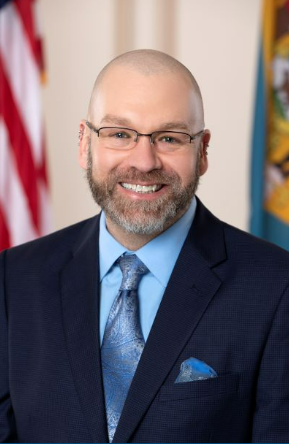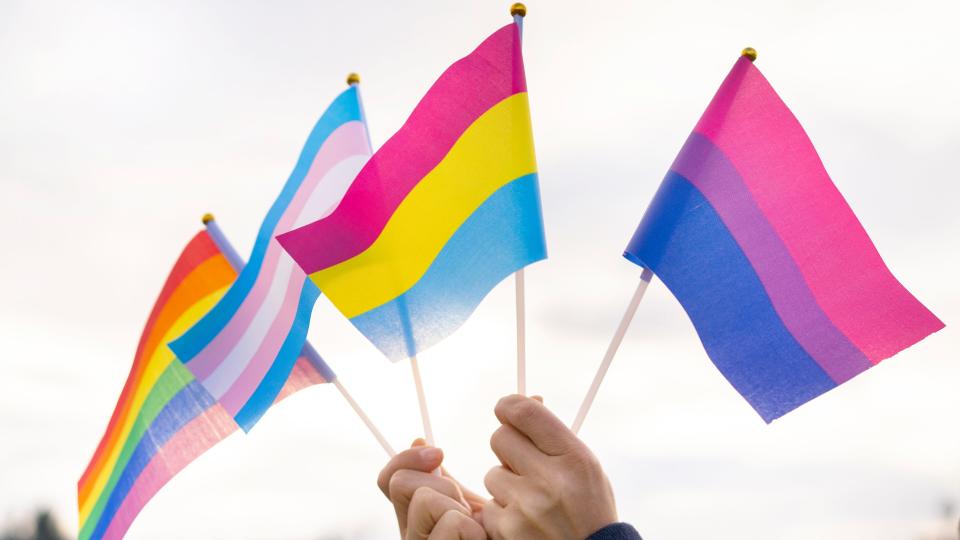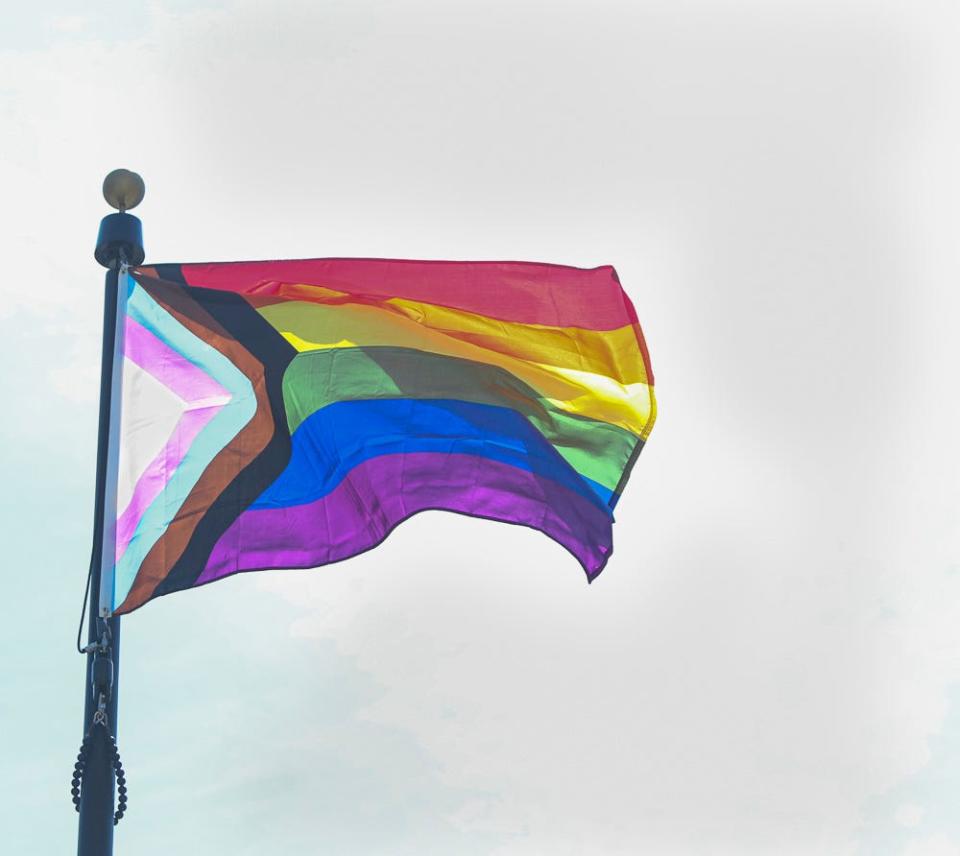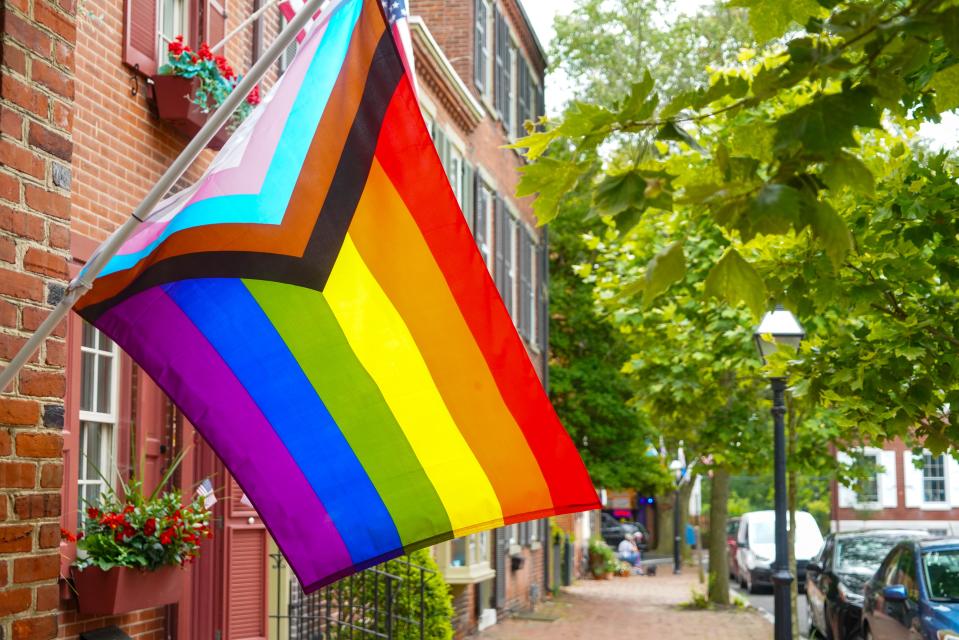New Delaware bill seeks to include asexuality and pansexuality under sexual orientation
Growing up in the '70s in Delaware, state Rep. Eric Morrison remembers what it was like to have the LGBTQ+ community and their issues ignored on larger platforms.
Decades later, he became one of the first openly LGBTQ+ legislators elected to the Delaware General Assembly in November 2020, along with Sen. Sarah McBride and Sen. Marie Pinkney.
Now, as a Democrat in the 27th district in Glasgow and an ally and member of Delaware’s LGBTQ+ community for more than 30 years, his recently proposed bill is part of his effort to continue advocating for a community that hasn’t always had a seat at the table.
What is House Bill 275?

House Bill 275 was introduced on Dec. 14 by Morrison, and a slew of co-sponsors to amend titles 6, 11, 18, 19 and 25 of the Delaware Code relating to “sexual orientation” to include asexuality and pansexuality, according to a bill summary on the Delaware General Assembly website.
Asexuality refers to a person with little to no sexual attraction to others. An asexual person may still desire emotionally intimate relationships with others, and experience other forms of attraction that can be romantic, aesthetic or sensual in nature, but does not intend to act out on that attraction in a sexual manner, according to the Asexual Visibility & Education Network.
Pansexuality refers to a person whose sexual and/or romantic attraction to someone else is not based on that person’s gender identity or sex. Someone who is pansexual may be attracted to more than one gender or all genders. The word “pansexual” is sometimes used interchangeably with “bisexual,” according to the Trevor Project.
What will the changes do?

The Delaware Code currently defines sexual orientation as either heterosexuality, homosexuality or bisexuality.
If the bill passes, it will amend this language to include asexuality and pansexuality under the Delaware Code’s definition of sexual orientation, encompassing more identities and making the term “sexual orientation” more inclusive.
The Delaware Code currently references “sexual orientation” several times, each failing to include a mention of pansexuality and asexuality, Morrison said.
Why is the addition of pansexual and asexual important?

Morrison knows pansexual and asexual individuals who say they often feel excluded in conversations about LGBTQ+ rights and issues, he said.
This, along with his desire to ensure folks who identify as pansexual or asexual cannot be discriminated against in situations such as housing or employment applications due to their sexual orientation, is why the bill exists.
“I don’t per se know of anyone who’s been discriminated [against] for this, but oftentimes in legislation, we codify things for people we don’t personally know,” Morrison said. “We don’t see this much in Delaware, thankfully, but in today’s environment, when community members are under attack ... it’s really important that young people and any people are able to see themselves represented anywhere we can and in the Delaware Code.”
In October of 2023, Delaware became the 17th state to ban the “LGBTQ+ panic” defense in a court of law, which refers to a defendant attempting to justify using force against a victim based on knowledge of the victim’s sex, gender identity, sexual orientation, gender or sex assigned at birth.
The ban, introduced by Morrison in May, protects LGBTQ+ Delawareans from becoming victims of violence. It passed in the House and unanimously in the Senate in June before Gov. John Carney signed it into law on Sept. 24.

In 2022, Morrison worked with Pinkney to pass legislation updating Delaware’s hate crimes laws.
The legislation modernized the definition of hate crimes; designated that a hate crime can be charged based on the perpetrator thinking that a victim belongs to a certain group, whether they do or not; clarified that a hate crime can wholly or partially be motivated by hate; and declared that a hate crime can be motivated by a perpetrator’s hatred toward a specific group or individual.
The legislation also requires law enforcement to report hate crimes to the Division of Civil Rights & Public Trust for tracking and data purposes and establishes a right to civil remedies for hate crimes.
Ultimately, it is hoped that HB 275 will “validate individuals who identify with one of these sexual orientations, sending a message that these Delawareans are recognized and valued,” Morrison said.
What's the status of the legislation?

As it is still early in the legislative session, the bill has not been heard in the House Administration Committee or on the House floor yet.
Morrison is hopeful for its passing given the numerous co-sponsors and the lack of opposition he has heard.
Morrison plans to continue working on pertinent legislation dealing with the LGBTQ+, citing his on-the-ground work speaking to LGBTQ+ youth and being surrounded by local communities as a huge motivator as he provides the higher-level advocacy he sought in his youth.
“A lot of people don’t know what asexuality or pansexuality is, and this is a great way to learn about it,” he said. “It’s also about educating the community and educating legislators.”
Got a tip or a story idea? Contact Krys'tal Griffin at [email protected].
Youth speak up: LGBTQ students fight for inclusion: 'We don't need to keep experiencing these 'hardships'
ICYMI: Hate crimes on the rise in Delaware, nationwide. Here are the numbers
Details on Morrison's previous bill: Delaware becomes 17th state to ban "LGBTQ+ panic" defense in court of law
This article originally appeared on Delaware News Journal: LGBTQ+ bill proposed in Delaware to protect asexuality, pansexuality
